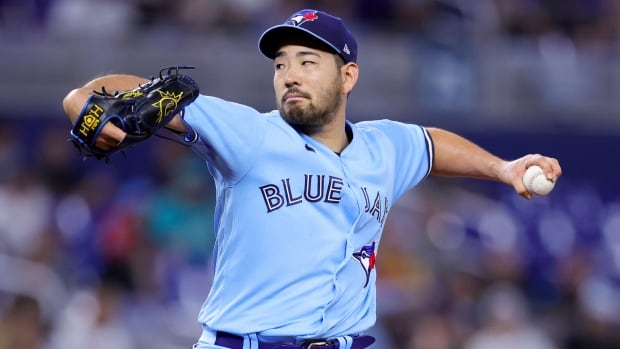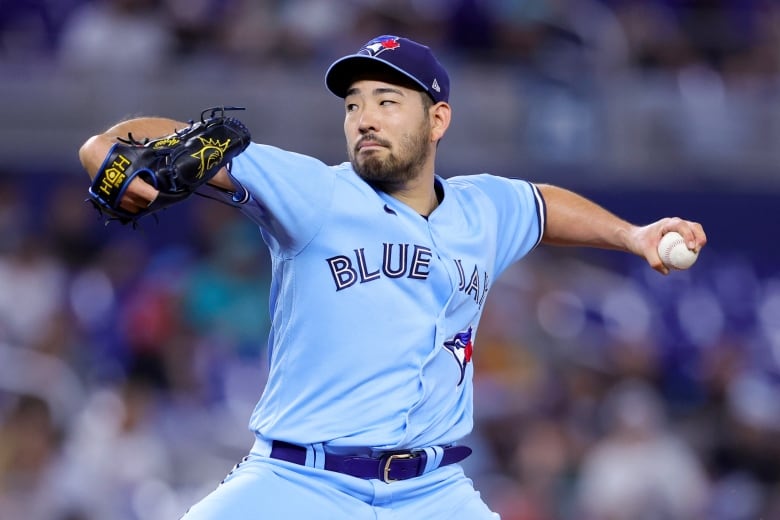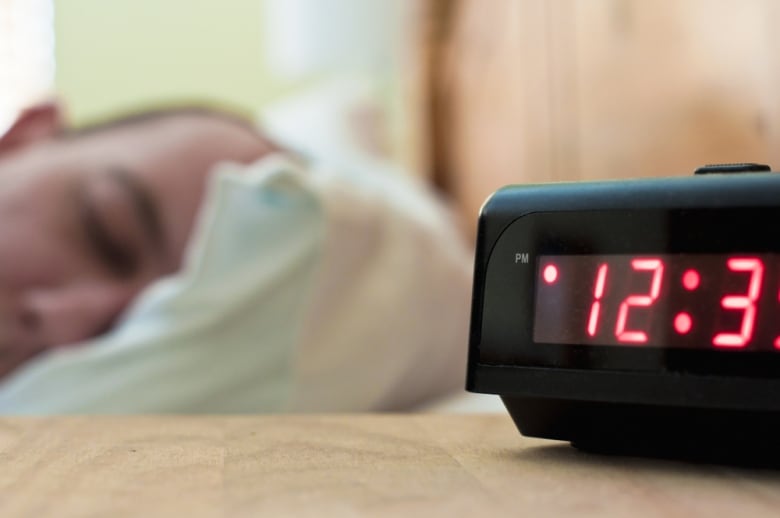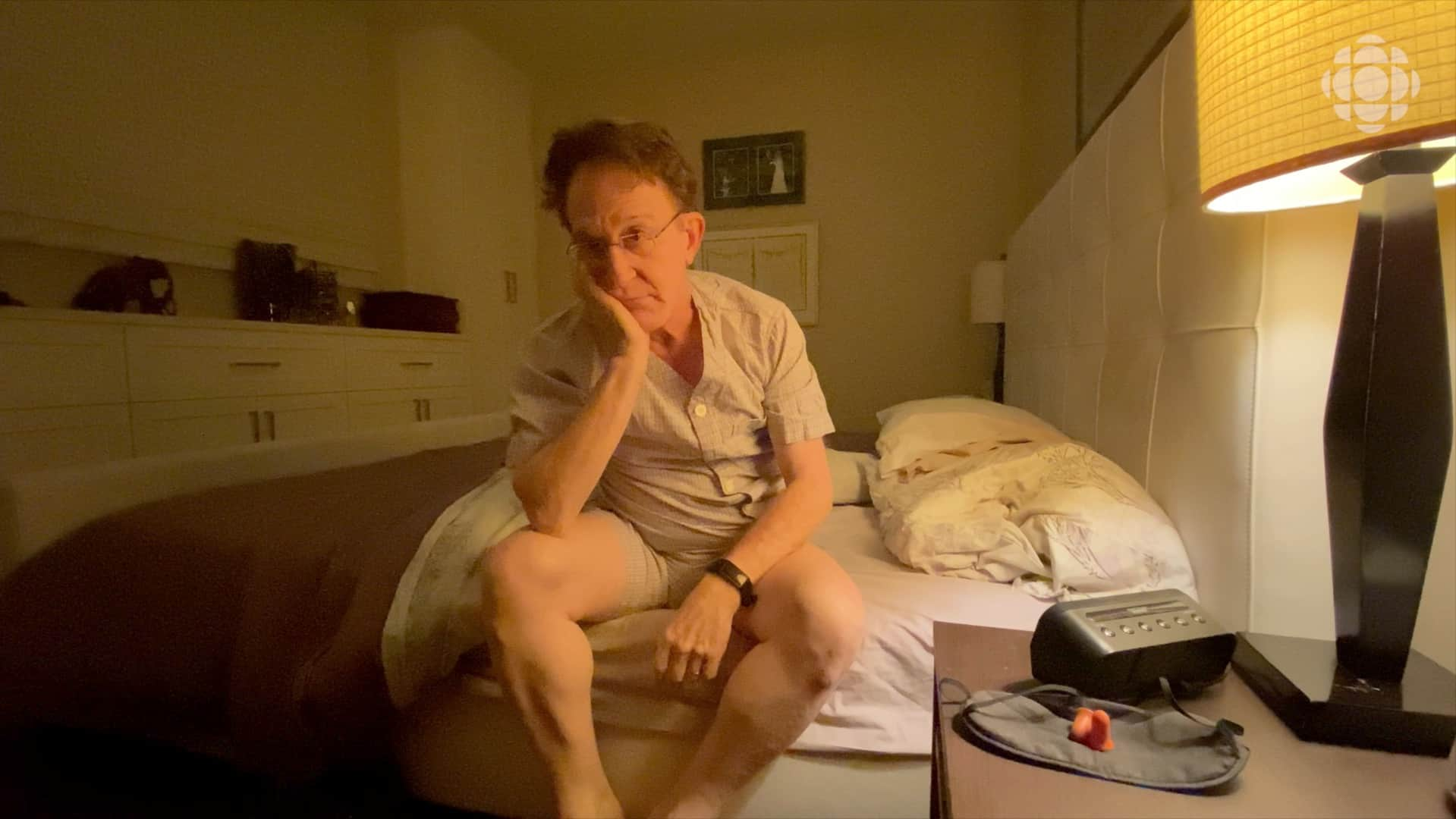
The Dose24:42How much sleep do I really need?
You’ve probably heard that adults need eight hours of sleep a night. It turns out some elite athletes are getting a lot more than that.
On Sept. 19, Toronto Blue Jays pitcher Yusei Kikuchi took himself out of a game against the New York Yankees — all because he hadn’t slept enough the night before.
Kikuchi got a cramp involving a muscle that is critical to the left-handed pitcher’s delivery. He said he only got 11 hours of sleep the night before, instead of the usual 13 to 14 hours he sleeps before a game when he is the starting pitcher.
If you’re not sleeping nearly that much, fear not. Chances are you don’t need the kind of rest Kikuchi needs to pitch baseball after baseball.

So how much sleep do you need, and how can you improve your sleep? Dr. Michael Mak, a staff psychiatrist and sleep medicine specialist at the Centre for Addiction and Mental Health in Toronto, spoke to Dr. Brian Goldman, host of CBC’s The Dose, to answer those questions.
Here’s part of their conversation.
So what did you make of this story about Kikuchi?
Mr. Kikuchi does sleep a lot, but it doesn’t surprise me. Elite, professional athletes tend to require more sleep, on average, compared to other folks, for the reason they’re really exerting themselves and for body recovery to occur adequately for them. A lot of them do sleep [more than] the general population.
For those of us adults who aren’t pitching for the Toronto Blue Jays, how much sleep do we need?
For the average adult, the recommendation is to sleep seven to eight hours a night.
Does napping affect the seven to eight hours of sleep? Or are we talking about an aggregate including naps?
As a general rule, it’s probably best to avoid napping if you’re an adult. So if you nap regularly during the daytime, that might cause insomnia symptoms at night, so maybe a problem falling asleep or staying asleep.
And if you have to take a nap, we advise you to take a nap that’s less than 30 minutes in length. Naps that are longer than 30 minutes can cause you to wake up feeling groggy. So the shorter ones are better.
OK, beyond age, what affects the amount of sleep that we need?
Your exertion during the daytime, whether it’s mental or physical. So if a person is, you know, participating in strenuous exercise, that person will probably need a longer period of sleep at night.
And same thing with cognitive or mental exertion. You know, if you’ve been doing something that’s mentally strenuous, you might need more sleep that night.

It’s not just a strict number of hours, it’s also the quality of the sleep that you’re getting. Can you expand on that?
When we think about sleep and study it, we break it down into different sleep stages and we determine that by reading your brain waves. So we differentiate the stages of sleep into two umbrellas, non-REM sleep and REM sleep. REM sleep is associated with rapid eye movements, it’s associated with vivid dreaming.
And then specific to the quality of sleep, we like to think that a portion of non-REM sleep, what we call deep sleep or slow-wave sleep or N3 sleep — that is the most restorative type of sleep that a person gets.
That’s the time when your brain waves are at their slowest. The amplitude of the brain waves are the highest, and that’s the time when the body releases the bulk of its growth hormone.
So when we think about muscle and bone repair, that’s the stage at which that occurs. And it’s also responsible for memory consolidation, especially declarative memory.
When we regularly don’t get enough sleep, either quantity or quality or both, what impact does that have on us?
It’s sort of like a two-prong situation. We know that sleep disturbance itself is associated with increased incidence of mood disorders like depression.
If a person has a history of bipolar disorder, a reduction in sleep can actually flip a person into mania.
We know that it has cognitive impacts. People that routinely sleep fewer than six hours a night do worse on cognitive testing, looking at things like reaction time and memory.
And then there’s also physical effects. We know that curtailed sleep is associated with cardiovascular illness, with an increased incidence of high blood pressure, diabetes, and even the risk of stroke and heart attack.
We started this conversation talking about one of the Blue Jays pitchers, Yusei Kikuchi. So what does research tell us about the amount of sleep that elite athletes need?
There’s been a burgeoning field of study, which is sleep and its relationship to performance in athletes. And it appears there’s a relationship between sleep extension and better athletic performance.
And the studies look at both aerobic and anaerobic performance. Aerobic performance, one example being, let’s say, a long-distance run, things that require significant lung capacity, things like distance swimming.
And anaerobic exercises are explosive, so they might involve things like what Kikuchi does, which is throwing a baseball with extreme speed.
It appears that sleep extension improves the performance of both types of activities. And conversely, a disturbance of sleep or curtailment of sleep duration leads to worsened performance.
WATCH / How to deal with your insomnia:
You mentioned sleep extension, which sounds like something that I would pay a lot of money to obtain if I could. Can you say more about sleep extension?
The sleep extension usually occurs one of two ways. Athletes can extend their sleep by going to sleep earlier than their usual habitual earliest bedtime. And then for some others, they’ve added in short naps during the day. So a nap of less than 30 minutes in length, once again avoiding that sleep inertia.
So let’s just say I’m coming to you for some advice. What is your advice for us average folks to get better sleep?
I would tell the average person to wake up every day at the same time, being that having a consistent wake time stabilizes your internal body clock at nighttime, which means better sleep and better mood.
What else would you recommend?
Other tips would include things like avoiding bright light, especially two to three hours before your bedtime. The bright light can take the form of fluorescent lighting indoors, but also from your smartphones and your laptops.
I think regular exercise definitely has been proven to improve sleep quality and mood, also. So you should do that on a regular basis, maybe half an hour a day at the very least.
But do avoid rigorous exercise within two hours of your bedtime, because if you exercise too close to your bedtime, that actually might prevent you from sleeping well.
